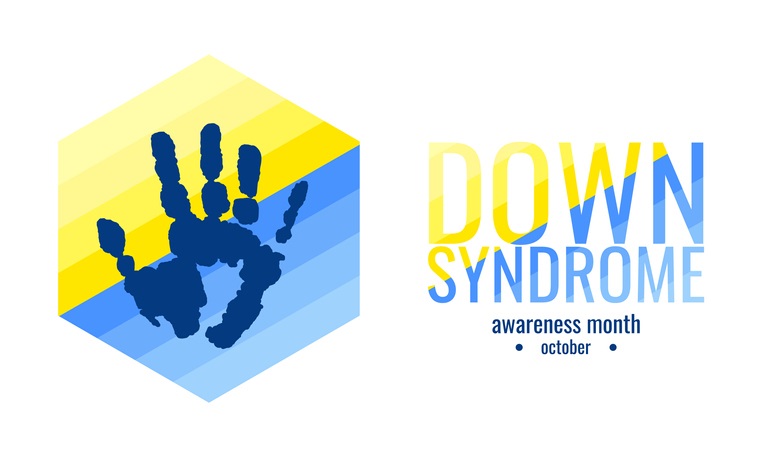
October is Down Syndrome Awareness Month and Flushing Hospital Medical Center is spreading awareness by sharing important facts about the disorder with our community.
Down syndrome, also called Trisomy 21, is the most common chromosomal condition in the United States. According to the Centers for Disease Control and Prevention (CDC), approximately one in every 700 babies in the U.S. is born with Down syndrome.
Typically, at the time of conception, a fetus receives genetic information from both parents in the form of 46 chromosomes. Down syndrome occurs when the fetus receives an extra copy of a chromosome; resulting in 47 chromosomes. This extra chromosome affects the way a baby develops physically and mentally. Some of the physical features and developmental problems associated with Down syndrome include:
- Flattened face
- Small head
- Upward slanting eyelids
- Unusually shaped or small ears
- Protruding tongue
- Short height
- Language delay
- Mild to moderate cognitive impairment
Every baby born with Down syndrome is different. Each child will have physical or intellectual disabilities that are unique to their condition. Parents of babies born with Down syndrome are advised to enroll their children into early- intervention services such as speech therapy or occupational therapy as soon as possible. These services can help to encourage or accelerate the child’s development.
The most commonly known risk factor linked to Down syndrome is a mother’s age. Women over the age of 35 have a significantly higher risk of having a child with this condition. Those with an increased risk are encouraged to consult a genetic counselor to discuss screening options.
To speak with a doctor a Flushing Hospital about your risk of having a baby with Down syndrome, please call 718-670-5486
All content of this newsletter is intended for general information purposes only and is not intended or implied to be a substitute for professional medical advice, diagnosis or treatment. Please consult a medical professional before adopting any of the suggestions on this page. You must never disregard professional medical advice or delay seeking medical treatment based upon any content of this newsletter. PROMPTLY CONSULT YOUR PHYSICIAN OR CALL 911 IF YOU BELIEVE YOU HAVE A MEDICAL EMERGENCY.
